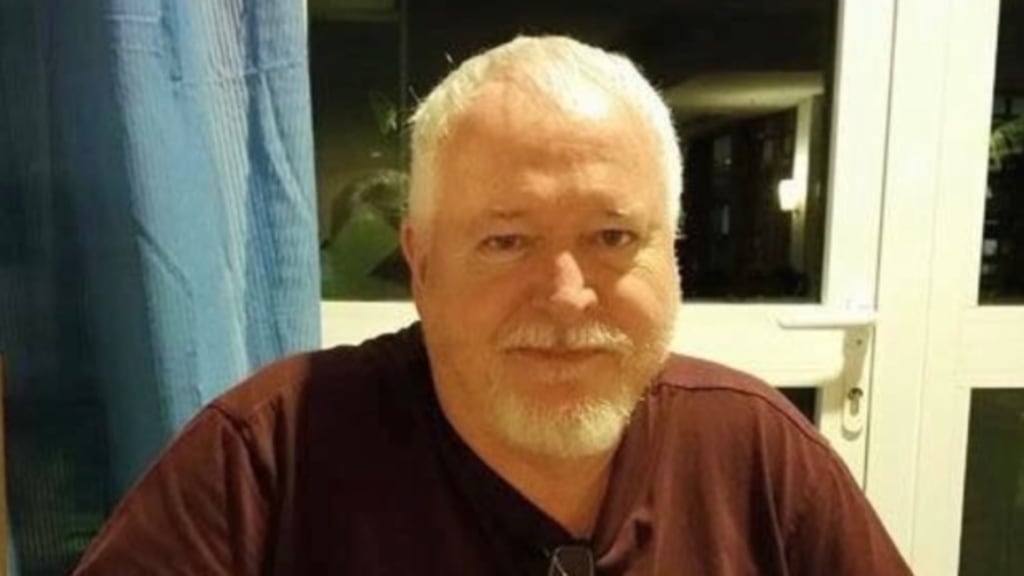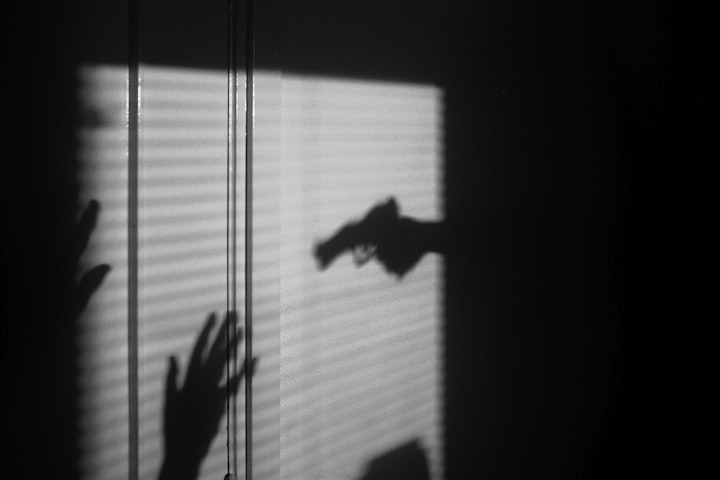Serial Killer Suspect Bruce McArthur, Disposable Man Syndrome, and 'The Kids in the Hall'
How a Serial Killer Made Me Think of a Comedy Troupe

Serial killers can be likened to viruses. Whenever they are discovered, they're evidence of something gone wrong. They symbolize a society on the fritz, so to speak They've also always been here, probably always will be, and they are ever-evolving. However, it might also be a misconception to call them "viruses," "monsters," or even "evil." The most startling thing about serial killers is that they are actually human. When we exaggeratedly try to separate ourselves from them, we're sort of kidding ourselves.
Sure, we may consider their brains damaged and their actions terrible, but even then there's a problem: The human race has a violent history apart from serial killers. They're sort of a predictable result of society as we know it. In fact, it's reasonable to assume that they heavily borrow their sadistic and violent inclinations from the world around them, in addition to whatever "natural" murderous proclivities they may have. They may go out of their way to justify cruel and violent behavior, but so often do non-serial killers. Totalitarian governments, and even so-called democracies, often kill people—including innocent people—and seem to think nothing of it. This doesn't let serial killers off the hook, obviously, but it definitely helps paint a clearer picture of where they partly come from.
I know skeptics will say, "You're just trying to blame it all on society! These people are born evil!" To that I might say a bit of "Yes" and a bit of "No." The truth is somewhere in the middle. The recent case of Bruce McArthur, a suspected Canadian serial killer—seems to exemplify what I'm saying. In many ways, he is the epitome of a self-hating "gay dude." In fact, there's no doubt (in my mind, at least) that his crimes stemmed from some kind of culturally induced, psycho-sexual darkness wherein kinkiness met up with murder. While I don't understand the man completely—at least I would hope not—I see in him paths that others could easily travel, if circumstances lead them there.
Why would I say that? In interview after interview I've seen, serial killers stress that, in many ways, they were normal people leading normal lives. What sets them apart? They deal with these deep, dark murder fantasies, blending sadism with homicidal rage—like Edmund Kemper whose hatred for his mother led him to kill other women (though, ultimately, he did get around to killing his mom, too). Or, in some cases, the issue has more to do with control and bodily fascination (like Jeffrey Dahmer).
I don't think most serial killers are lying about all this. In fact, it's possible that the need appear "normal" feeds their dark desires even more. As they must be hidden, they become kinkier, like a forbidden fruit made sweeter by its rarity and secrecy. Some serial killers are intentionally risk-takers, loving the idea that they're just barely getting away with it, as their mania is just barely out of sight (for example, the BTK killer seemed to want to "keep the game close" as he taunted police and fed his celebrity).
Serial killers often mention how it's like an addiction. If I remember correctly, Gary Ridgeway (the so-called "Green River Killer") even mentioned his trying to cut down on murder, as if the kills were comparable to cigarettes. He even mentioned his wife as a factor, and how their relationship made him start to feel guiltier. While it's tempting to say Gary was lying, it's possible that he was being honest, and that he was starting to feel more conventionally human due to his marriage.
Killers—Symbolic of Social Ills?
Whatever the motive, a key element to serial killing is the idea of de-humanization, or turning people into mere objects of desire. That's how a killer can more easily manipulate, control, torture, kill, and/or throw a person away like trash. If you ask me, nothing about that makes them entirely alien from the rest of society.
In fact, warfare has seen more people die than the average serial killer could carry out. The big difference is, a serial killer's violence isn't funneled through the "proper channels" of society's institutions—be they government, corporate, religious, etc.
Either way, if you separate yourself from a victim, it is more easily to stab someone, or strangle them, bomb them, etc. People become disposable, a means to selfish ends. A good soldier just follows orders when possible, while a "good" serial killer follows his or her instincts when possible. While it's taboo in some circles to see soldiers compared to serial killers, it's time we just be honest and consider the warning of serial killer Richard Ramirez: "Killing is killing, whether done for duty, profit or fun."
The Disposable Man and 'The Kids in the Hall'
Allow me to go on what may seem like a tangent, though I promise it ties back in to Bruce MacArthur and serial killers:
In the 1990s there was a great, cutting edge, Canadian/American sketch comedy show called The Kids in the Hall. They had plenty of weird characters from all sorts of different backgrounds (including ethnicities), and they were known for tackling issues facing the gay community. I watched the show as a youngster, and I found it funny and occasionally thought-provoking. Rather than always taking "shots" at people and being offensive for shock value (though they sometimes did that), The Kids most often created a universe out of thin air, and relatable characters in those universes. While they were often absurd characters in crazy situations, sometimes things were more down to earth and practical.
For example, their sketch called "The Steps" was, in some ways, a ho-hum look into the lives of gay characters hanging out on a street corner. It somehow wasn't boring, though, and I (a heterosexual male) enjoyed the characters for some reason—even though I arguably had every reason in the world not to. In other words, The Kids in the Hall played at least a small role in my acceptance of gay people later on in life. Though I assume I would have still been accepting, it always helps when we can look at "different" people who are entertaining and inspiring. Well, here's where this gets more relevant to serial killers: "The Steps" was no doubt inspired by actual steps attached to a building near Church and Wellesley in Toronto, considered an "LGBT-oriented enclave" (in Wikipedia's words). Unfortunately, some disappearances related to Bruce MacArthur were linked to this area. In other words, this news of Bruce MacArthur unfortunately reminded me of Bruce McCulloch.
Now, I don't want to over-emphasize The Kids in the Hall here, but I wonder if Bruce MacArthur had ever watched it, or ever thought about it. If some of the show's core messages had gotten through to him, would he now stand accused of his crimes? Could something as simple as a TV show had made his brain work differently?
Oddly enough, I freely wonder the same thing about society at large. It's been argued that, for quite some time, certain Missing Persons cases in Canada weren't investigated thoroughly enough. The theory is, of course, that there was no "call to arms" because gay men were the victims (or at least those who disappeared, whether located or not). Had investigators been pressured just a little more to investigate these cases, it seems MacArthur could have been arrested as a suspect sooner. Now, as the MacArthur case expands, one wonders just how many deaths he is responsible for, and whether confessions will become part of a plea bargain.
Also, there's a common (and plausible) theory that gay serial killers partly stem from self-hatred, caused in part by homophobic attitudes in society. This is another reason to mention ground-breaking cultural influences like The Kids in the Hall. To see "different" people as being relatable, human, multi-faceted and not totally monolithic is important. If we can see the good and the bad in people, it makes a difference. It shows intelligence. If we can laugh at them AND with them, it shows that we're well-rounded (and yes, we should be able to laugh at people, no matter their background or identity). And if we can laugh along as different people poke fun at us, it shows our own sense of humor and ability to take criticism. When all we do is condemn and fail to find common ground, it inevitably makes the world a worse, more dangerous place. Obviously not everyone's going to get violent, but some probably will.
The Disposable Man Syndrome/Masculine Stereotypes
On that note, I also wonder what role societal attitudes toward men—not just gay men, but men in general—played in shaping MacArthur's murderous nature. From what I understand, MacArthur lived much of his life in the closet, similar to Jeffrey Dahmer. As more people understand, this easily leads to self-hatred, self-denial, self-nullification, or even the destruction of others. It's really not good, no matter how one slices it.
It also seems like the "disposable man syndrome" (as I like to call it) factors in here a lot. What does that mean, and why do I say that? Well, I don't claim it's a highly scientific theory. In fact, I see it as a general impression regarding life, as opposed to something that must be meticulously proven. Basically, the idea is that, in some circumstances, a middle-aged, male human being is seen as less worthy of attention as a victim than, say, a child, or yes, a female.
It's a potentially polarizing idea, and I don't mean to say we should pay more attention to male victims. No, I just think there's truth to the idea that male victims are downplayed, especially in this day and age. For example, on a global scale, men account for 78.7 percent of all murder victims (according to a UN study). That's a fairly high percentage, isn't it? Yet most media emphasis seems to be on victims who are women or children. Part of me understands that because, in some ways, women and children seem more vulnerable. However, this tendency seems to have more in common with chivalry than reality. Even allowing that women and children are physically less likely to defend themselves, let's not forget that men—even muscle-bound, macho "dudes"—are not completely invulnerable to attack.
You see, very often there's this societal expectation that if someone is bigger, no one who's shorter or less muscular can defeat them. They are essentially like the Incredible Hulk. It's forgotten that, at the end of the day, they are mere mortals. Cut them and they bleed, regardless of any "super man" mythology regarding tough guys. Still, this idea persists (and it has the quirky side effect that shorter, non-muscular men are regarded as vastly weaker, which isn't necessarily true, either).
This general media impression is not just about murder, either. If a man gets punched in the face, how many people really care, or think the man could be seriously traumatized by it? While no one should ever be punched (at least ideally), it seems like any concern over it regarding men is regarded as "weakness," being soft, or what have you. Sure, I don't wish to make a mountain out of a molehill—as most punches and kicks are survivable, and not particularly traumatic, but (in my opinion) the casual disregard we give to this subject goes hand in hand with the collective yawns offered to young men going off to war. Men are born to fight, we are basically told. It's in their nature, so to expect anything less is almost naïve. While not everyone has this attitude—and I personally hate the expression "toxic masculinity," I see it as a self-defeating attitude toward human life. I also think dramatic things like serial murder at least partly feed into (and result from) this phenomenon.
Comedy and Violence
Going back to The Kids in the Hall, it's obvious that they also mocked macho attitudes a lot, in addition to all identity politics (yes, they basically made fun of all of it). They were very prescient, and many of their sketches almost seem more relevant now than back then. I would not say "toxic masculinity" is the problem, though, but that everything can become toxic if people are overly sensitive to it, and let it feed into dark impulses. Everything can be taken too far.
A serial killer tends to be into kinky and morbid sex, which they obviously take too far. A person who's utterly grossed out by homosexuality (either because they're genuinely homophobic or deeply closeted) can easily go way too far, as opposed to it just not being their thing. A person with boundary issues, who's quick to grope others as objects of desire, is obviously going too far. A person who punches, slaps, hits and kicks others is also crossing a line. All of these result from people being too sensitive, not being able to take a joke or withstand criticism, and generally lacking sound philosophy to ground their behaviors and dark impulses.
At the same time, someone incapable of understanding such flawed behavior is going too far in the other direction, if you ask me. All of these flawed and destructive behaviors are understandable, perhaps even relatable. To cross that line into understanding them is not necessarily to duplicate their acts. In fact, it seems essential if we're ever to solve such behavior.
This is exactly why we should have cutting edge, weird humor, as an outlet and vehicle for understanding. We should try to make fun of everything, while doing our best to understand it. Few things do that better than comedy (and, coincidentally, horror movies). Take, for example, this KITH sketch, making fun of mass murderers (or serial killers, one supposes). The phenomenon may be serious, but that doesn't mean it's not a joking matter, either. Serial killers are definitely worth making fun of. They are fascination to try to understand, but they are ultimately pathetic and sad, too, and worthy of occasional mockery and wry sarcasm.
One of the higher goals in discussing violence is assessing means to prevent it. In this article I tried to offer—and hopefully delivered—insights into why people like Bruce MacArthur exist. My article surely isn't enough to explain everything, or to stop all such evils from occurring (wouldn't that be nice, though?) Instead, I think it may provide food for thought, particularly for those sick of the status quo, and who believe simple answers just won't cut it. What I'm discussing involves a lot of detail—far more than I can successfully convey. However, if I can convince people to alternately take violence seriously AND SOMETIMES LAUGH ABOUT IT, I think it's a good thing.
Violence can pretty much happen to anyone, pretty much by anyone. So, when I express solidarity with those on "The Steps," I'm not intending to forget anyone else. Life is not an either/or equation.
About the Creator
Wade Wainio
Wade Wainio writes stuff for Show Snob, Undead Walking, Pophorror.com, Vents Magazine and Haunted MTL. He is also an artist, musician and college radio DJ for WMTU 91.9 FM Houghton.






Comments
There are no comments for this story
Be the first to respond and start the conversation.